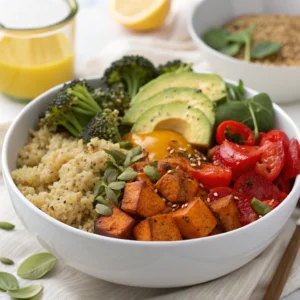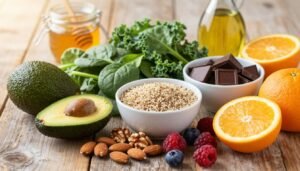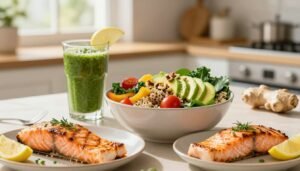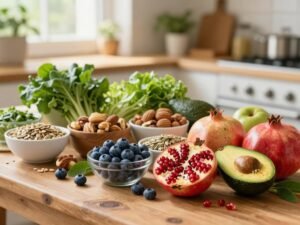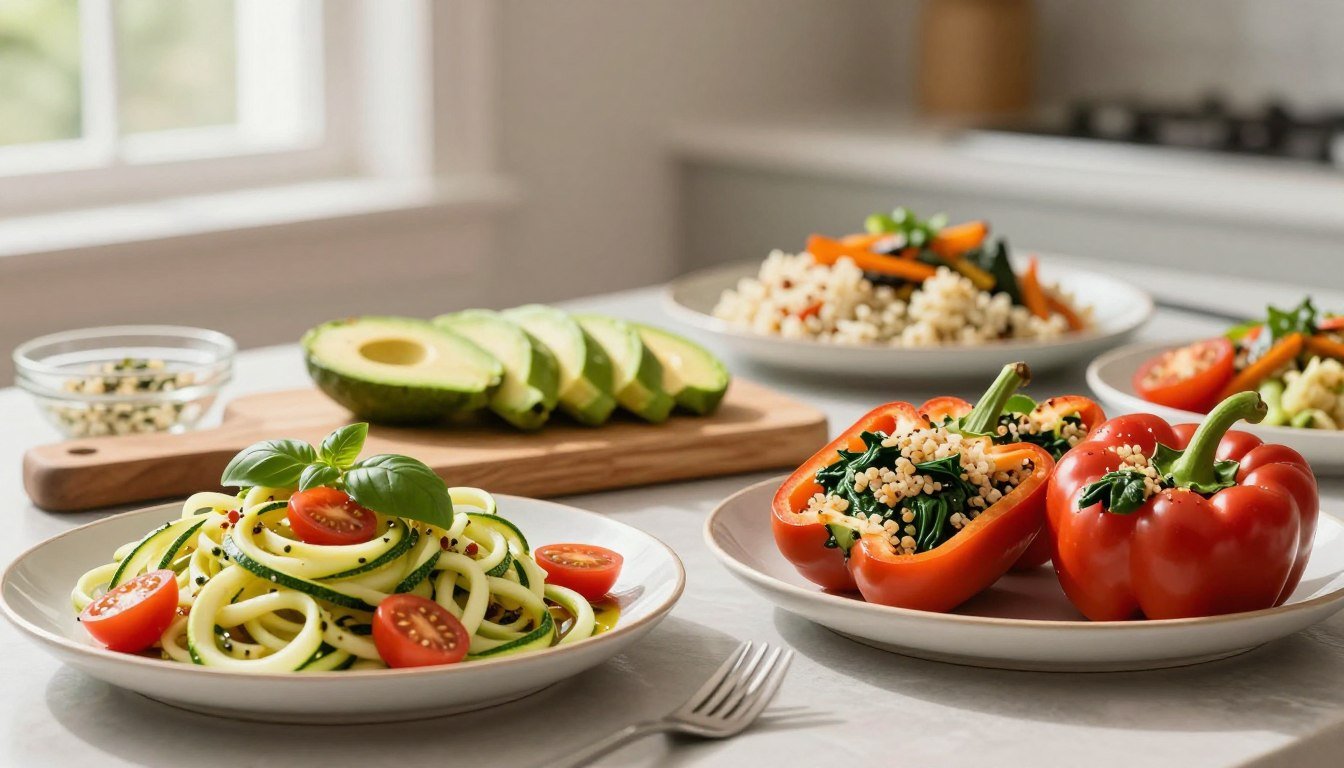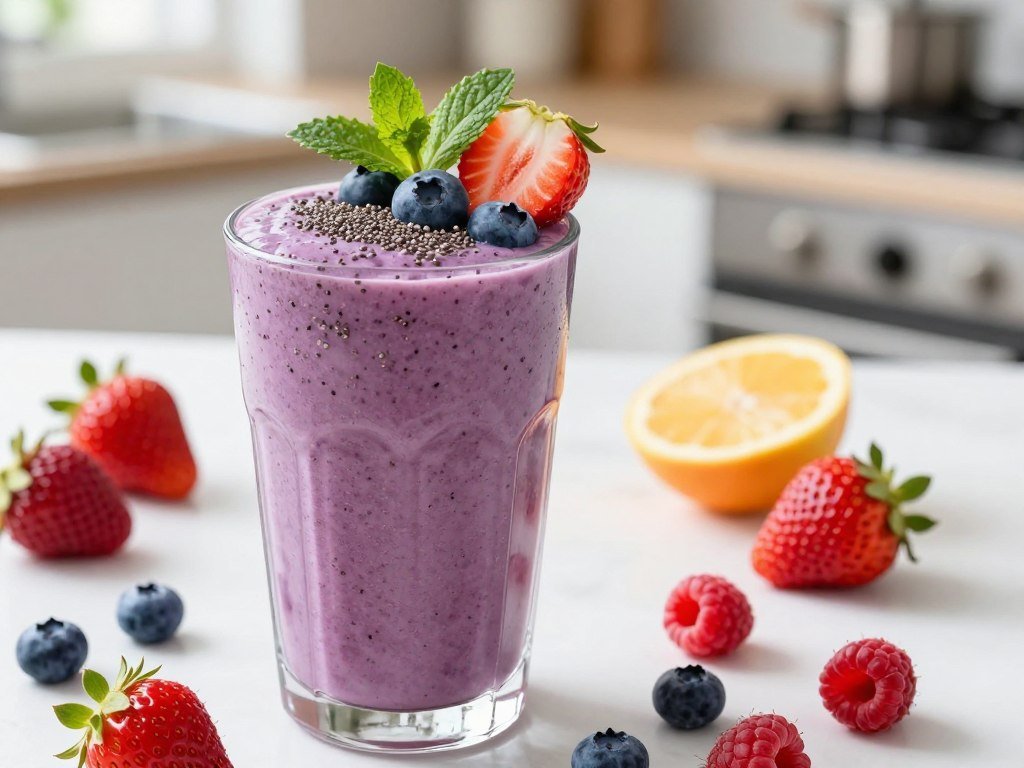As an Amazon Associate I earn from qualifying purchases.
The Best Plant-Based Proteins
The Benefits of Incorporating Plant-Based Proteins into Your Diet
What are the best Proteins?
The best proteins are rich in nutrients obtained from plants.
Unlike animal proteins, which come from meat, dairy, and eggs, plant-based proteins are derived from sources such as beans, lentils, quinoa, almonds, and soy.
These proteins offer a wide range of essential amino acids necessary for the body’s proper functioning.
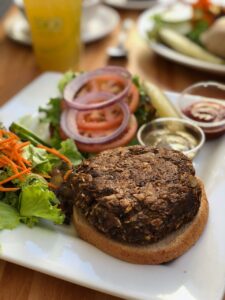
Health Benefits:
Improved Heart Health
Incorporating plant-based proteins into your diet can have a positive impact on heart health.
The proteins are typically low in saturated fat and cholesterol, which are known to help your heart.
Studies have shown that diets rich in plant-based proteins can help lower blood pressure, reduce LDL cholesterol levels, and decrease the risk of heart-related conditions.
Weight Management
Plant-based proteins can also aid in weight management.
They are generally lower in calories and higher in fiber compared to animal proteins.
Fiber helps you feel fuller for longer, reducing the chances of overeating. Additionally, they are often accompanied by other beneficial nutrients, such as antioxidants and healthy fats,
which can support a healthy weight and overall well-being.

Reduced Risk of Chronic Diseases
A plant-based diet that includes an adequate number of proteins that can help reduce the risk of chronic diseases.
They are are packed with antioxidants, which protect the body from oxidative stress and inflammation.
This, in turn, can lower the risk of conditions like diabetes, certain cancers, and neurodegenerative disorders.
Essential Nutrients
Fiber
Fiber promotes healthy digestion, regulates blood sugar levels, and aids in maintaining a healthy weight.
It also supports the growth of beneficial gut bacteria, which plays a crucial role in overall gut health.

Antioxidants
Plant-based proteins contain a wide array of antioxidants.
These powerful compounds protect the body against free radicals, which can cause cellular damage.
Antioxidants help strengthen the immune system, improve skin health, and reduce the risk of chronic diseases.
Healthy Fats
Certain plant-based protein sources, such as nuts, seeds, and avocados, are rich in healthy fats, including omega-3 fatty acids.
These facts are essential for brain health, heart health, and reducing inflammation in the body.
Incorporating these proteins that contain healthy fats can contribute to a well-rounded and balanced diet.
Protein Sources
Legumes
Legumes, including beans, lentils, chickpeas, and peas, are excellent sources of plant-based proteins.
They are also rich in fiber, iron, and folate. Legumes can be used in various dishes,
such as soups, stews, salads, and veggie burgers, making them versatile options for incorporating plant-based proteins into your meals.

Grains
Grains like quinoa, brown rice, whole wheat, and oats also provide a considerable number of plant-based proteins.
They are often considered staple foods in many cuisines
and can be used as a base for salads, grain bowls, stir-fries, and side dishes.
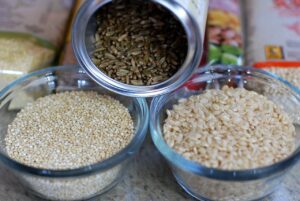
Nuts and Seeds
Nuts and seeds, such as almonds, walnuts, chia seeds,
and flaxseeds, offer plant-based proteins along with healthy fats and other essential nutrients.
They make excellent snacks, toppings for yogurt or oatmeal, or ingredients in baked goods and homemade granola.
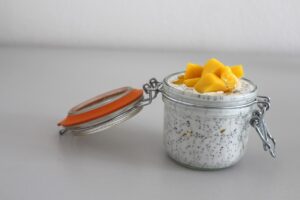
Soy Products
Soy products, including tofu, tempeh, and edamame, are
complete protein sources and are highly versatile in
cooking. They are widely used as meat substitutes in various
cuisines, providing an abundance of plant-based proteins,
calcium, and other vital nutrients.

Vegetables
Vegetables, such as broccoli, spinach, Brussels sprouts,
and asparagus, also contain notable amounts of plant-based proteins.
While they may not be as concentrated as other sources,
they still contribute to your overall protein intake and offer additional health benefits.
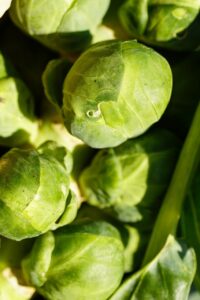
Recipes
There are countless delicious recipes available that feature plant-based proteins.
From hearty lentil soups to flavorful quinoa salads and protein-packed smoothies, you can explore a vast array of options.
Incorporate into breakfast, lunch, dinner, and snacks to ensure a well-rounded and satisfying diet.
51 Plant-Based High-Protein Recipes: For Athletic Performance and Muscle Growth
Advanced Tips, Optimization & Meal Planning with Plant-Based Proteins
1. Complementary Proteins & Amino Acid Synergy
While many plant-protein sources are nearly complete proteins, it’s still wise to combine a variety of sources across meals to ensure you’re getting all essential amino acids in optimal proportions. Traditional combinations like beans + rice, hummus + whole-grain pita, nut butter + whole-grain bread, or lentils + quinoa help fill in any minor amino acid gaps. Over the course of a day, mixing legumes, whole grains, nuts, seeds, and soy ensures broad coverage of amino acids without obsessing over “perfect” combos at each meal.
2. Protein Density vs Bulk: Smart Choices
One challenge in a fully plant-based diet is balancing protein density (grams of protein per calorie or per volume) with satiety and digestibility. Some very high-protein vegan products (e.g. isolated soy, pea protein powders) may deliver ~20–25 g protein in 100–120 kcal, but they’re more processed. Whole-food sources like beans, lentils, chickpeas, and quinoa offer lower protein density but also bring fiber, micronutrients, and slower digestion, which enhances fullness and sustained energy.
Here’s a rough comparison:
| Source | Approx Protein per 100 g (cooked) | Pros / Notes |
|---|---|---|
| Lentils | ~9 g | Affordable, high in fiber, iron, folate |
| Black beans | ~8 g | Versatile, works in salads, stews, wraps |
| Tofu (firm) | ~8–10 g | Soy-based, adaptable in savory/sweet |
| Tempeh | ~18–20 g | Fermented, strong flavor, dense protein |
| Quinoa | ~4–5 g | Gluten-free grain, complete profile |
| Seitan | ~25 g | Wheat gluten — high protein, less suitable for gluten-sensitive |
Use denser sources when you aim for a protein boost (e.g. post-workout) and bulkier whole foods when you’re aiming for satiety or larger meals.
3. Timing, Distribution & Muscle Synthesis
Research suggests that distributing protein intake more evenly across meals (e.g. breakfast, lunch, dinner) supports better muscle protein synthesis than heavily skewing protein into one meal (evening). Even for plant-based diets, aiming for ~20–30 g of protein per meal—or doing the closest possible given your energy needs—turns out more effective for preserving or building lean mass. If one meal falls short, use a protein-rich snack (e.g. hummus + veggies, nut butter on whole grain, protein smoothie) to fill gaps.
4. Enhancing Bioavailability of Plant Protein
Some plant proteins contain anti-nutrients (like phytic acid, tannins, and trypsin inhibitors) that can mildly reduce absorption of minerals or slow digestion of proteins. Fortunately, traditional preparation methods can mitigate these effects:
Soaking beans, legumes, and grains overnight before cooking helps reduce phytic acid.
Sprouting / germination (for grains, beans, seeds) further reduces anti-nutrient content and may enhance enzyme activity and digestibility.
Fermentation (as in tempeh, miso, natto) breaks down complex compounds and improves nutrient availability.
Combining with vitamin C rich foods (bell peppers, citrus, tomatoes) improves iron absorption from plant sources when eaten together.
By adopting these techniques, you boost the efficiency of your plant-based proteins.
5. Smart Use of Protein Powders & Supplements
Whole-food protein sources should remain your foundation, but protein powders (pea protein, brown rice protein, soy isolate, or blended “vegan protein” formulations) can serve as convenient boosters—especially around workouts, when traveling, or on busy days. Choose products with minimal additives, minimal sugars, and ideally a spectrum of amino acids. Always check for third-party testing to ensure quality.
You can easily add a scoop of vegan protein to:
Your morning smoothie (e.g. spinach, banana, almond milk, protein powder)
Oatmeal or overnight oats (stir it in or blend)
Pancake or waffle batters (replace part of flour)
Baked goods (muffins, protein bars, energy balls)
Just balance so that powders complement—not replace—whole-food proteins.
6. Sample Day — High-Protein Plant-Based Meal Plan
Here’s a sample day that aims for ~ 90–110 g protein (adjust based on your needs):
| Meal | Foods & Portions | Estimated Protein |
|---|---|---|
| Breakfast | Smoothie: 1 scoop pea/soy protein (~20 g) + 1 tbsp chia (~2 g) + 1 cup soy milk (~7 g) + spinach + frozen berries | ~30 g |
| Snack | Apple slices + 2 tbsp almond butter (~7 g) | ~7 g |
| Lunch | Lentil & quinoa salad (1 cup cooked lentils ~18 g + ½ cup quinoa ~4 g) + greens, veggies, olive oil | ~22 g |
| Snack | Hummus (¼ cup ~5 g) + carrot sticks + whole-grain pita (½ pita ~3 g) | ~8 g |
| Dinner | Tempeh stir-fry (150 g tempeh ~30 g) + mixed vegetables + brown rice | ~30 g |
| Evening Snack (optional) | Baked chickpea snack or edamame (½ cup edamame ~8 g) | ~8 g |
7. Addressing Common Concerns & Myths
“Plant proteins are weak / inferior” — Actually, when consumed in variety and quantity, plant proteins can fully support strength, endurance, recovery, and growth. Many elite athletes thrive on plant-based protocols.
“Too much fiber will hurt digestion” — While fiber is abundant, a gradual increase and proper hydration help your digestive system adapt. Sprouted or cooked legumes tend to be gentler.
“It’s hard for vegans to get enough protein” — With thoughtful planning, it’s very feasible. Beans, lentils, soy, seeds, grains and occasional protein boosters can easily meet and exceed standard recommendations (~0.8–1.2 g per kg body weight, or higher for athletes).
8. Tips for Meal Prep & Planning
Batch-cook legumes and whole grains at the start of the week; store in airtight containers for quick use.
Keep frozen vegetables, pre-washed greens, and canned beans (low sodium) on hand for fast assembly.
Protein salad jars / bowls: Layer beans, grains, veggies, and dressing in mason jars—just shake and eat.
One-pot meals like stews, chili, lentil soups, curries, and grain bowls simplify cooking.
Use theme nights (e.g. “Tofu Tuesday,” “Tempeh Thursday,” “Legume Sunday”) to vary your protein source and keep things interesting.
Snack smart: carry single-serve nut/seed packs, roasted chickpeas, or protein bars (minimal ingredients) for when hunger strikes.
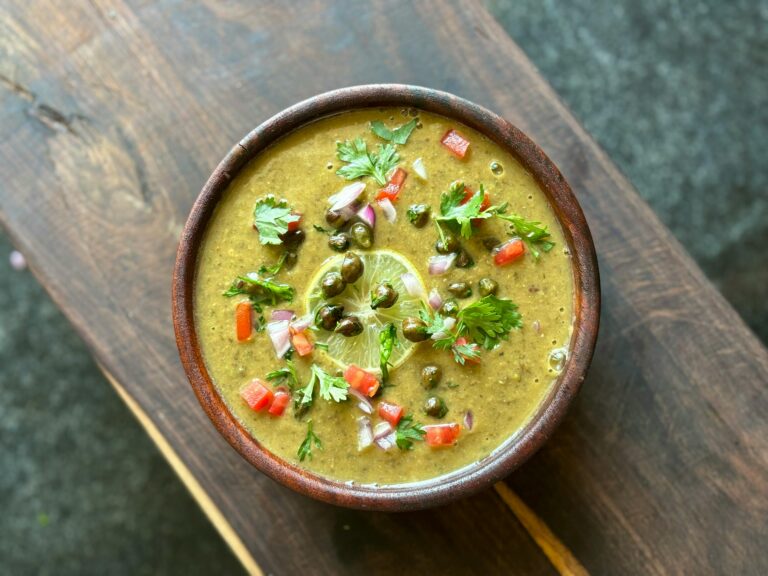
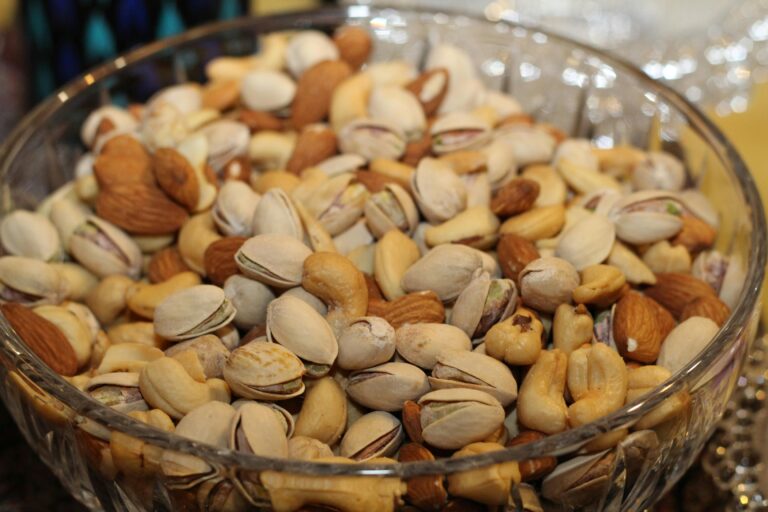
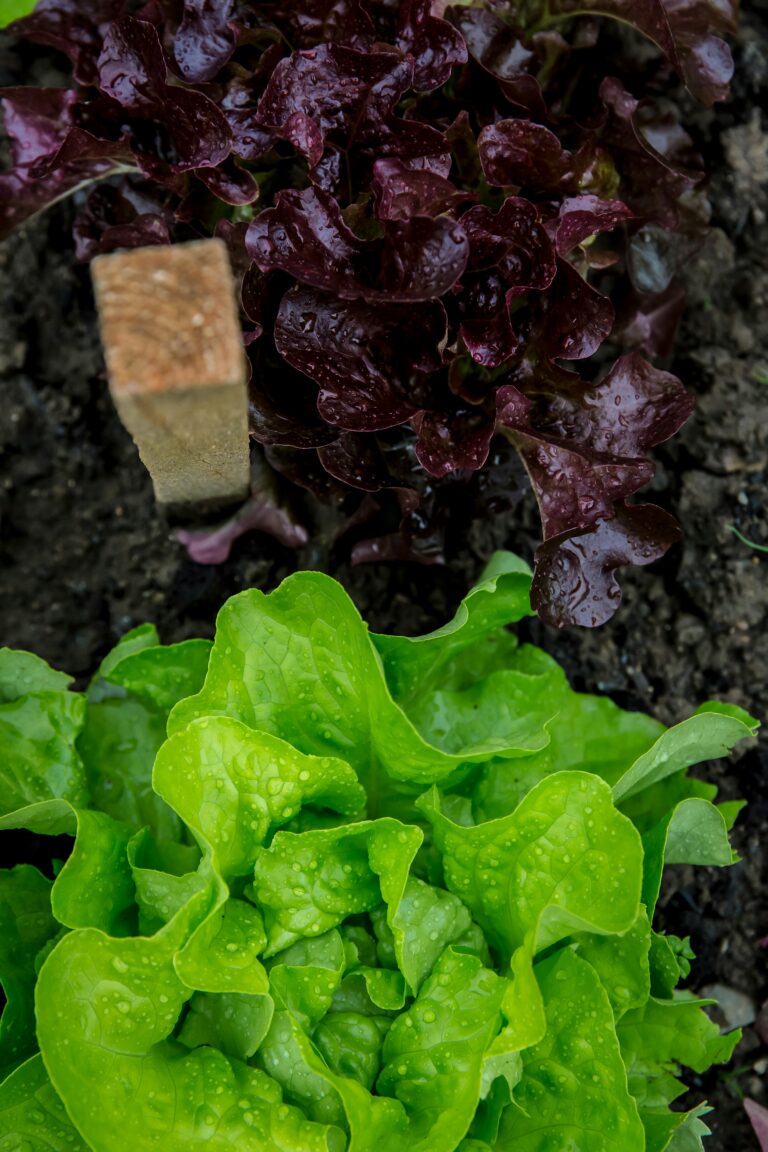
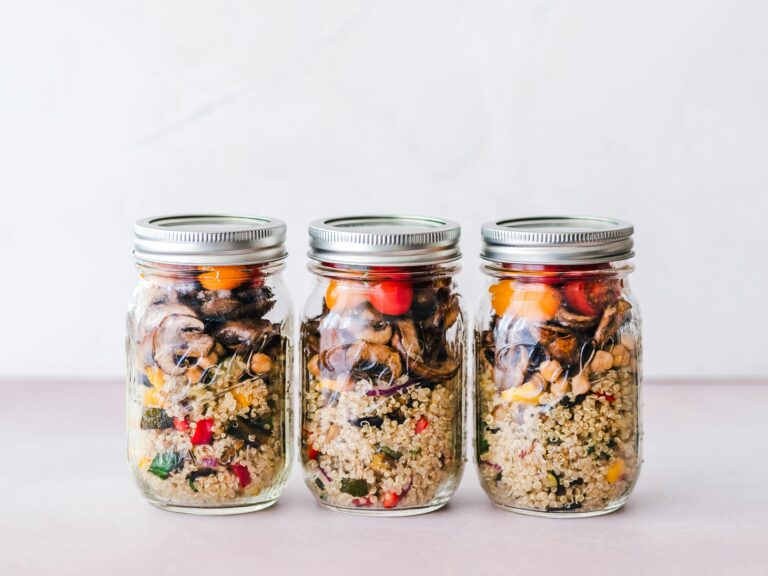
9. Listening to Your Body & Adjusting
Track how you feel across muscle recovery, energy levels, digestion, and performance. If you notice fatigue, slow recovery, or muscle soreness, you may need to slightly up your protein intake or ensure better distribution. Also, collaborate with a nutritionist or registered dietitian if you have specific health goals (strength, fat loss, endurance) or dietary restrictions (e.g. for kidney health)
FAQs
Yes! They provide the necessary amino acids for muscle repair and growth. Athletes can meet their protein needs through a combination of plant-based protein sources such as legumes, whole grains, soy products, and nuts.
Yes! While certain plant-based proteins may be lower in specific amino acids, consuming a varied diet that includes a combination of different plant-based protein sources ensures you receive all the necessary amino acids
Yes, they are typically lower in calories and higher in fiber, promoting feelings of fullness and reducing overeating. Additionally, plant-based proteins can support a balanced diet that includes a variety of fruits, vegetables, whole grains, and healthy fats.
Yes, plant-based proteins can be suitable for children. It’s important to ensure they receive a variety of protein sources to meet their nutritional needs. Consulting with a pediatrician or a registered dietitian can help ensure a well-balanced plant-based diet for children.
Yes, they can be more cost-effective than animal proteins. Beans, lentils, whole grains, and certain vegetables are often more affordable compared to meat and dairy products.
Amazon and the Amazon logo are trademarks of Amazon.com, Inc or it's affiliates.
Related Posts
- Transitioning to a Plant-Based Diet
Transitioning to a Plant-Based Diet The Rise of a Whole Food Plant-Based Diet: Benefits, Challenges,…
- What is the Best Diet For You
What is the Best Diet for You Plant-Based or Fasting A Complete Analysis of Plant-Based…
- How to Lose Weight With These 10 Tips
How to Lose Weight With These 10 Tips Introduction: How to Lose Weight Are you…


